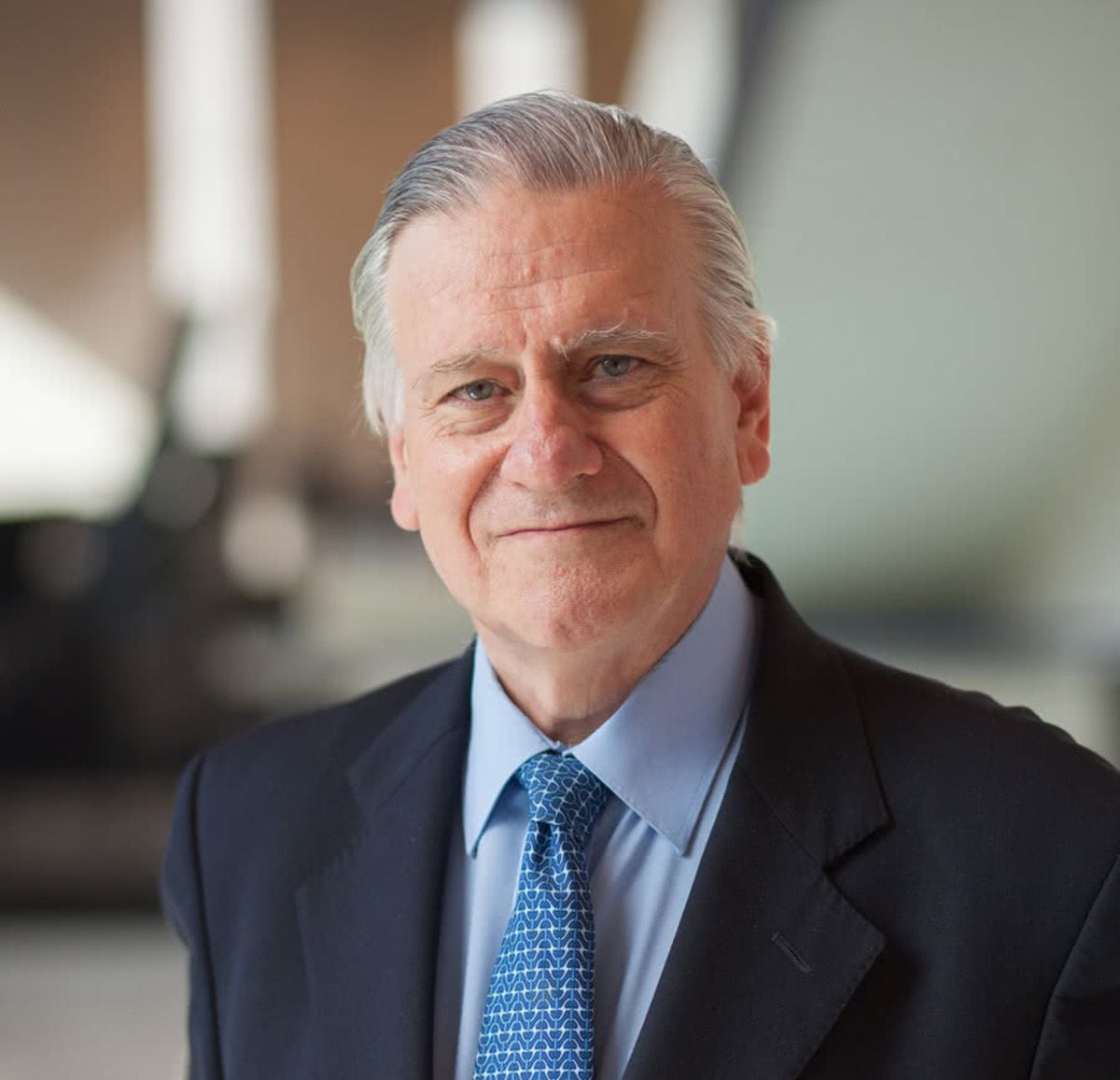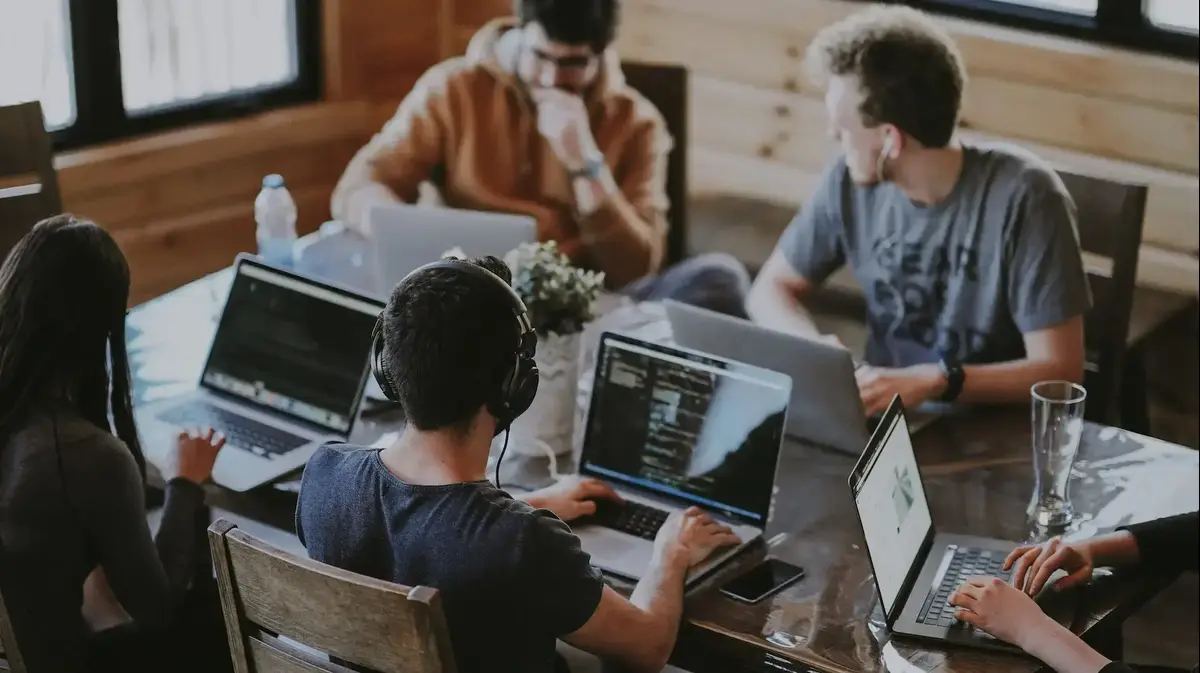It is seven in the morning in New York —one in the afternoon in Barcelona— and Dr. Valentín Fuster (Barcelona, 79 years old) has already had three meetings behind him.
Later, he has a meeting with Spanish researchers in New York in which Queen Letizia will participate;
he will meet the American first lady, Jill Biden;
and he also has to give a talk to young scientists.
not stop
He only saves 15 minutes, between 5:00 when he arrives at the office and 5:15, to think and reflect.
Every day.
It is his method of work, of life, of being.
Fuster, who has accumulated an extensive academic curriculum and now combines the general direction of the Carlos III National Cardiovascular Research Center in Spain with the command of the Cardiovascular Institute of the Mount Sinai Medical Center in New York, sees patients, investigates and devises health strategies.
He continues to try to cure as much as possible, but he has also been fighting another great battle for prevention for a long time.
Since his foundation (SHE, Science for Health and Education), he has focused, for example, on education to change habits and stop cardiovascular risk factors before they appear.
You have to attack on all fronts.
The doctor connects by videoconference with extreme punctuality at the agreed time.
He doesn't stop, but he's calm.
He speaks without haste, despite the agenda.
Ask.
They have done dozens of interviews.
He is probably the best known cardiologist in Spain.
He even has a Muppet.
What does Valentín Fuster have to say that he has never said or been asked?
Response.
What is the method that I use to work in so many aspects, from the clinical point of view, research and education and with so many projects.
Q.
And what is it?
R.
I am very rigid with the method: first, prevention.
I never work at the last minute, but with enough time to be able to reason.
Then, every day, I sit down for 15 minutes to think.
And what do I think?
Well, I think about aspects, first, more personal.
For example, I have the concept of the four t's: time to reflect each day, it is fundamental;
talent to discover, that is, what is the best investment we can make, never leave what you really know and can do well;
convey positivity, rather than wasting your time and energy complaining about everything;
and the fourth is tutoring, I work a lot with young people.
The four t's are fundamental to how I function.
And then there are other aspects that I am not going to go into, which are four a, which is how you transmit to society what you learn to improve society.
Q.
Why don't you want to go in?
R.
Because we entered an extrapersonal field… Well, I'll tell you.
Basically, an attitude: to all the problems that one has, we are going to try to find a solution.
The second is altruism, which is fundamental in our lives and gives us much more strength for everything.
The other is to accept how you are and who you are.
And the fourth, authenticity: I am talking to you now and tonight I will come home and I am the same person, I am not going to change.
All this is my guide.
P.
Recently, you spoke to EL PAÍS about a study of yours that demonstrated the efficacy of the polypill in preventing heart attack relapses because it improved adherence to treatment.
Why don't people take their medication?
R.
We are in a very difficult, competitive world, in a great hurry.
We are living urgently and the issue of adherence to medication is not urgent.
It is a chaotic world, you need to think every day where you are, what is fundamental.
And health, unfortunately, at the moment, does not seem to be one of the fundamental aspects of the society in which we live.
We are in a highly technical society, in a world of consumption, of competitiveness, and where long-term aspects, such as health, are given much less importance.
P.
You speak of the world of consumption, of competitiveness... Are you pointing to savage capitalism as the cause of this alteration in the order of priorities?
We are riddled with time and competition and this makes us eat more and smoke to calm anxiety”
Valentin Fuster
R.
I would not call it capitalism, but I would call it
technology out of the world
, technology is in a hurry.
I have
emails
every two minutes and one thinks: if all these websites were gone, maybe we would live more peacefully.
Technology is taking us to a fast-paced, competitive, urgent world and we forget what is most important in our lives in the long term.
Q.
How are these dynamics reversed?
A.
I believe in simplicity.
The day I feel like I'm going to die, looking back, what am I going to say about what I did right and what I did wrong, what was important and what wasn't.
And here things appear that we don't think about in our day-to-day: family, colleagues, friends, communication... And you'll tell me: "You've been given many awards."
But I don't think this is my final day, but how I have treated my colleagues, how I have committed myself to society, will enter.
Q.
Are we living poorly for our health?
A.
Terrible.
We live badly.
Look at what is happening with obesity, diabetes, blood pressure... 50% of the population with high blood pressure don't even know it and of the 50% that know it, only half are treated.
We live in a consumer society and this deprives us of what is important in the long term: the importance of the quality of life more than the quantity of life.
P.
Actually, everyone knows that smoking is bad or that obesity is a risk factor for developing cardiovascular diseases, but people continue to smoke, overweight is skyrocketing and cardiovascular diseases are the leading cause of death.
What's going on?
R.
We are riddled with time and competitiveness.
This makes us eat more, makes us smoke to calm anxiety... What is rising is a reflection, a marker of the consumer society in which we are living.
What technology has done is prolong our lives, but the consumer society has accelerated us in such a way that the risk factors cause us to have more illnesses, but we can cure them more because we have technology.
Q.
Is it, then, technology that saves us from our inability to prevent these diseases?
A.
Exactly.
It is a survival.
The technological world has positive things, like prolonging life, but it has negative aspects, like what is happening with social networks: this technology involves a lot of anxiety and a lot of lies and it is a very negative aspect.
There are negatives and positives to technology, but the bottom line is that we are using technology to survive the negatives of technology.
P.
With regard to risk factors, with tobacco you walk with less consideration.
But with alcohol there is a lot of controversy: there are studies that support moderate consumption.
How much is good?
Which is the message?
R.
With this alcohol, better not start.
The problem is who can say that they are going to have a drink of alcohol a day and not two or three or four.
I don't go into the detail of whether [a drink] helps or doesn't help;
what we do know is that starting out doesn't help because most people drink more than they should.
Q.
About smokers, you said several times that you have to understand what makes a person smoke.
How are the responsibilities for having unhealthy habits shared between users, the system and the industry?
A.
It starts with us.
Everything from outside is taken into account and we do not blame ourselves.
You have to enter into you, why do you smoke.
There are always fundamental reasons for what happens and they are very personal, let's not blame society.
Q.
You talk about individual responsibility.
And what about the industry?
In the year 2000, you said yourself: “I fight against tobacco and tobacco companies, not against smokers”.
What is the responsibility of the industry?
R.
I put the industry with a huge responsibility and a lack of ethics, but it is my personal opinion.
P.
You also said that the food industry should be dominated.
A.
Absolutely.
It has to be legislated.
And in this I feel more optimistic because the food industry will continue with healthier foods, it is not like the tobacco companies, which is all or nothing.
Q.
In 2018, a study came out that criticized Coca-Cola, for example, for having paid money for health promotion activities to various entities.
Among them, his foundation [gave him more than 300,000 euros].
This message, from the industry promoting these healthy activities, can't it be counterproductive?
Investigators said he served his own business interests.
A.
I agree.
In our case, what they did is help in Cardona, a town in Catalonia, so that people could exercise.
But we have to be careful how we use the industry.
Also, on the other hand, there are many industries that are playing a great role in low-economy countries, bringing water, using infrastructure...
With alcohol, it is better not to start because most people drink more than they should”
Valentin Fuster
Q.
If you can't beat the enemy, join him.
R.
I remember the case that [Coca-Cola's help to the SHE Foundation] told me about and one day, from these meditations that I have, I came to the conclusion that we have to be careful.
One sees how we can make people in Cardona walk, have two paths... and it was fantastic.
But later, you reflect more and see that you have to be careful.
P.
There are many open fronts in the challenge of improving people's health.
What is there left to do?
In cardiovascular diseases, they have been hammering out preventive messages for many years.
Should we keep repeating these slogans or look for new ideas?
A.
Brand new.
You have to start with an individual and for me, the brain is more important than the heart.
It is what you think that will decide what you are going to do with your heart.
From here, you have to create an environment around you that is favorable: it starts with the person, continues with the family, goes to the work environment... But we have made two mistakes: the first mistake is to believe that politicians they are going to solve the risk factors: they contribute, but to say that they are responsible, no;
and the second is to think that the patient I'm going to see from here in half an hour, I'm going to change her life.
Prevention is absolutely essential, but it is more important to promote health, to start before there are risk factors.
Q.
And where do we start?
A.
Find 15 minutes a day for yourself.
And think about where you are and where you are going.
Start with your brain.
You can follow
EL PAÍS Salud y Bienestar
on
,
and
.








/cloudfront-eu-central-1.images.arcpublishing.com/prisa/353DSTGTBRE6RD6JSKEB5VLQDE.jpg)
